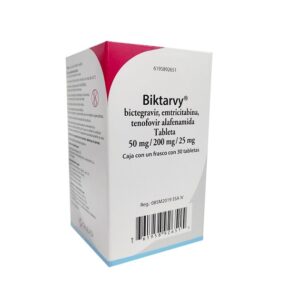Inflammatory Bowel Disease (IBD) encompasses chronic conditions like Crohn’s disease and ulcerative colitis, affecting millions worldwide. Managing IBD effectively requires the expertise of a qualified ibd specialist who can provide accurate diagnosis, tailored treatment plans, and ongoing care. This blog will guide you through how to choose the right ibd specialist, the treatments available, and how expert care can improve quality of life.
Working with an experienced IBD specialist is essential for achieving the best outcomes. Unlike general care, an IBD specialist has the training and expertise to accurately diagnose the specific type and severity of the condition. They also provide individualized treatment plans that may include medications to reduce inflammation, dietary guidance, and lifestyle recommendations to minimize flare-ups.
Ongoing care is equally important, as IBD often requires continuous monitoring to track disease progression and adjust treatments as needed. An IBD specialist can also help patients manage complications, improve quality of life, and access advanced therapies when standard treatments are not effective.
Living with IBD can be challenging, but with the right support and medical guidance, it is possible to manage symptoms and maintain a healthy lifestyle. Partnering with a skilled IBD specialist ensures patients receive the care they need for long-term digestive health.
Why an IBD Specialist is Essential
IBD is a complex condition that affects the gastrointestinal tract, leading to symptoms like abdominal pain, diarrhea, weight loss, fatigue, and inflammation. A general practitioner may manage minor gastrointestinal issues, but an ibd specialist offers:
-
Expert knowledge of Crohn’s disease and ulcerative colitis
-
Personalized treatment plans tailored to disease severity and lifestyle
-
Access to advanced diagnostics, biologic therapies, and clinical trials
-
Continuous monitoring to prevent complications and flare-ups
How to Choose the Right IBD Specialist
Selecting the right ibd specialist can make a significant difference in disease management and quality of life. Consider the following factors:
1. Credentials and Experience
-
Board-certified gastroenterologist with specialization in IBD
-
Experience treating patients with various severity levels of Crohn’s disease and ulcerative colitis
-
Familiarity with advanced therapies like biologics and immunomodulators
2. Comprehensive Care
A good ibd specialist provides more than just medication:
-
Nutritional guidance and diet management
-
Psychological support for coping with chronic illness
-
Coordination with surgeons, dietitians, and other healthcare professionals
3. Patient-Centered Communication
Effective communication is key:
-
Clearly explains the diagnosis, treatment options, and risks
-
Answers questions and addresses concerns
-
Provides guidance for lifestyle modifications and self-care
4. Access to Advanced Treatments
Modern IBD care includes:
-
Biologic therapies for moderate to severe cases
-
Immunomodulators and anti-inflammatory medications
-
Minimally invasive surgical options for complications
-
Clinical trials for innovative treatments
An ibd specialist with access to advanced treatment options ensures that patients receive the most effective, up-to-date care.
5. Reputation and Patient Reviews
Patient testimonials and reviews can provide insight into:
-
Quality of care and bedside manner
-
Success in managing complex cases
-
Overall patient satisfaction
Common Treatments Offered by IBD Specialists
IBD treatment depends on disease type, severity, and patient response. Common approaches include:
-
Medication: Anti-inflammatory drugs, immunosuppressants, and biologics
-
Lifestyle Modifications: Diet adjustments, stress management, and exercise
-
Surgery: For patients with severe complications such as strictures or fistulas
-
Regular Monitoring: Blood tests, colonoscopies, and imaging to track disease progression
Benefits of Consulting an IBD Specialist
-
Improved symptom control and reduced flare-ups
-
Slower disease progression and prevention of complications
-
Personalized treatment plans tailored to individual needs
-
Guidance on lifestyle, nutrition, and mental well-being
Tips for a Successful Appointment with Your IBD Specialist
-
Keep a symptom diary to track flare-ups, triggers, and responses to treatment
-
Bring a list of current medications and supplements
-
Prepare questions regarding treatment options, side effects, and long-term care
-
Discuss lifestyle factors like diet, stress, and exercise
An organized approach ensures that your ibd specialist has the information needed to optimize your care.
Frequently Asked Questions (FAQs)
Q1. What is an IBD specialist?
An ibd specialist is a gastroenterologist with expertise in diagnosing, treating, and managing inflammatory bowel diseases like Crohn’s disease and ulcerative colitis.
Q2. When should I see an IBD specialist?
If you have persistent gastrointestinal symptoms, a confirmed diagnosis of IBD, or complications like strictures, fistulas, or severe flare-ups, consult an ibd specialist.
Q3. What treatments do IBD specialists offer?
Treatments may include medications, biologics, immunomodulators, dietary guidance, surgery, and ongoing monitoring.
Q4. Can an IBD specialist help with lifestyle changes?
Yes. They provide guidance on diet, stress management, and exercise to improve quality of life and reduce flare-ups.
Q5. How do I find a qualified IBD specialist?
Look for board-certified gastroenterologists with experience in IBD, access to advanced treatments, positive patient reviews, and a patient-centered approach.
Conclusion
Managing IBD requires expertise, personalized care, and ongoing support. Consulting a qualified ibd specialist ensures that patients receive advanced treatments, continuous monitoring, and guidance for lifestyle management.
By choosing the right ibd specialist, patients can achieve better symptom control, prevent complications, and improve their overall quality of life. Early consultation, adherence to treatment plans, and open communication with your specialist are key steps in successfully managing inflammatory bowel disease.





